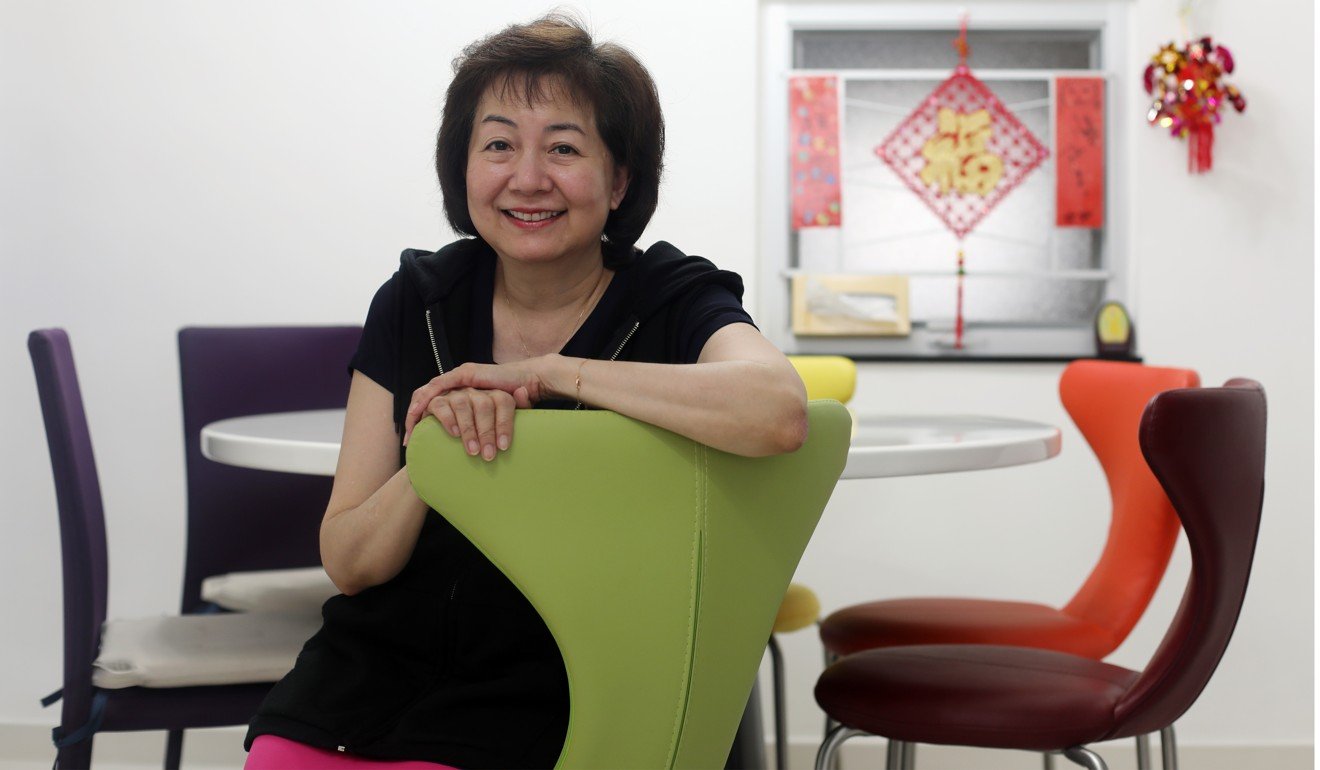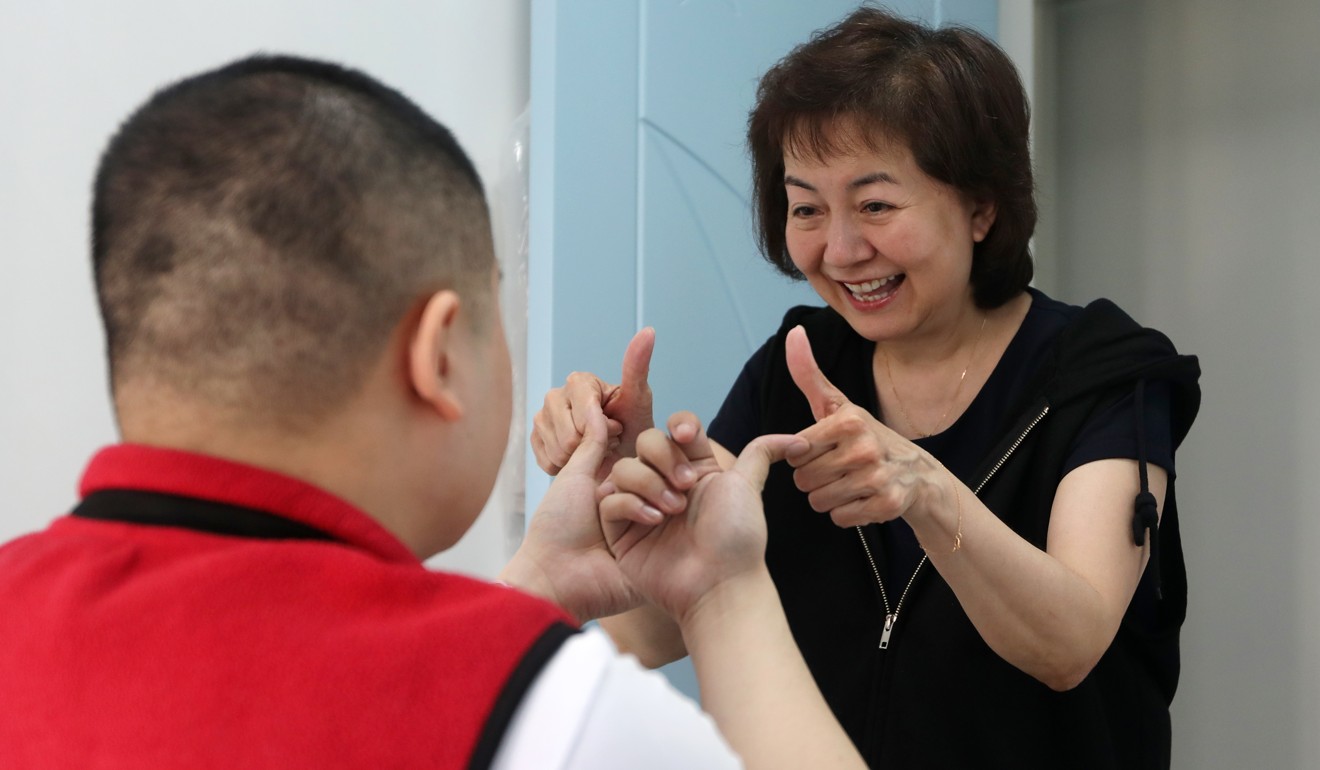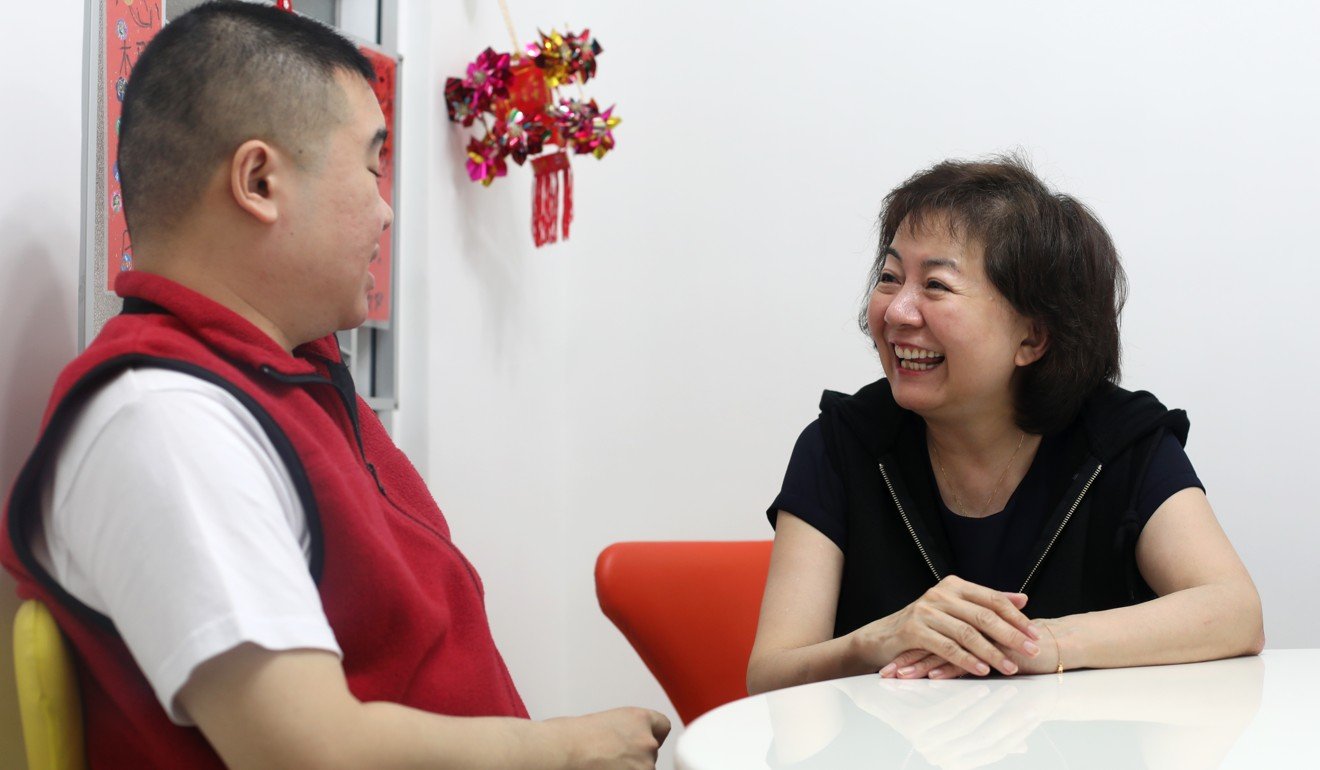
15-year wait for hostel care: the plight of Hong Kong’s intellectually disabled who face life without family to help
- Pauline Lau and her husband fear for their son’s future after they are no longer around to care for him
- With a place at a care home seemingly out of reach, their predicament is a familiar story for many parents with disabled children

What do you do when there is no one left to care for your child?
That’s the question Pauline Lau Ka-wai and her husband are asking themselves as their years advance and their intellectually disabled son faces the prospect of life alone.
Adding to their fears is the fact their son has been waiting 15 years for a place at a government-subsidised hostel that cares for Hongkongers with conditions like his.
“Both my husband and I are going on 60 years old and we don’t know when something might happen to us,” Lau, a retired civil servant, said.

Her son Samuel Kwok Pak-yeung, 30, is an only child and does not have any relatives who can help.
He is capable of basic self-care, albeit clumsily, but has the mental abilities of a three-year-old. His mother said simple needs such as putting on extra clothes in the cold weather might not occur to him.
He suffers from attention deficit hyperactivity disorder, autism and has little linguistic ability.
With their worries constantly in the back of their mind, Lau and her husband have been hoping the government can help.
When Kwok turned 15, the couple were quick to apply for a place in a hostel for him at Kwun Tong in East Kowloon. The facility cares for the severely and moderately intellectually disabled, but only after they turn that age.

Fast-forward another 15 years, and Kwok is still waiting. Such long-drawn-out queues for care are the norm in Hong Kong – one of the world’s most densely populated cities.
The number of intellectually disabled Hongkongers was estimated to be between 71,000 and 101,000 in 2013, accounting for about 1.4 per cent of the population, according to the Census and Statistics Department.
A document recently submitted by the government to the legislature’s finance committee showed the average waiting time as of the 2017-18 fiscal year for hostels serving the moderately intellectually disabled was more than 10 years. For the severely intellectually disabled, it was just short of 15 years – a five-year high.
The hostels take in those who lack the necessary daily living skills to live independently in the community, or who require nursing. There are other facilities available depending on the level of need, from those requiring more intensive care to Hongkongers who can live semi-independently.
Applicants go through an assessment mechanism to ascertain their needs before they are placed on waiting lists.

As of December last year, there were 3,631 people at hostels for the severely intellectually disabled, and 2,550 using homes for those with a moderate disability.
But the number already waiting for these facilities was 2,602 and 2,422, respectively, as of December.
The last severely intellectually disabled person classed as a non-priority case who was accepted to a hostel in East Kowloon applied in August 2000.
A spokeswoman for the Social Welfare Department said two hostels for patients with severe conditions in Tai Po and Sha Tin had opened for care last month with a total of 250 places.
Questioned by lawmakers at a recent Finance Committee meeting, the city’s labour and welfare minister Dr Law Chi-kwong said more projects would be coming online in the near future, which he hoped would bring down waiting times.
These included a complex in Kwun Tong set to open this year with 300 residential places, and another at Siu Lam in Tuen Mun scheduled for 2022 or 2023, which would provide 1,150. But these hostels will not solely be for the intellectually disabled – they will also care for patients with other disabilities.
Law said the government would take a multipronged approach to finding land for new care facilities, but he did not give a timetable when asked by legislators.

Labour Party lawmaker Fernando Cheung Chiu-hung said insufficient land was only an excuse.
“I don’t see the government unable to build the Hong Kong-Zhuhai-Macau Bridge or the high-speed rail link,” he said, referring to two huge infrastructure projects opened last year. “We are talking about the most disadvantaged here.”
Seeing the figures on waiting times, Lau, whose family has a history of stroke, said she felt helpless.
“Some people don’t like to have intellectually disabled people living near their home as they feel it might reflect badly on their community,” she said.
For now, she and her husband, who works for an online media company, count themselves lucky they are able to afford three domestic workers to look after their son. But Lau still needs to be hands-on with his care, especially to make daily decisions about his needs.
Renee Lai Pui-mei, chairwoman of the Association of Parents of the Severely Mentally Handicapped, called on Hong Kong officials to plan for hostels and other care based on the population in different areas.

The government-appointed Rehabilitation Advisory Committee is formulating a new Rehabilitation Programme Plan and is studying the idea. It aims to submit a report by the end of this year.
Lai also suggested officials include terms in contracts for the sale of public land about building hostels for the disabled.
Most parents wanted to keep their children at home as long as possible before entering hostels, she said. But the scarcity of places meant families had to accept a place whenever they were lucky enough to secure one, and some had to part ways before or after they were ready.
“It’s a sad thing, but many parents would rather have their children die before them,” she said.